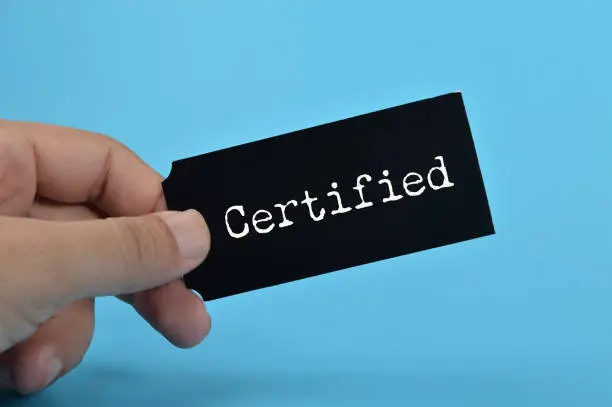Thinking of how to make budget proposal? This article contains the tips you need to prepare budget proposal.
Developing a budget for your proposal tends to be a demanding task for some nonprofits. But in reality, budget is one of the essential requirements needed by donors before you can receive grant award. Your proposal is incomplete without a budget. Donors review your budget the same way they review other elements of your proposal.
Budget enumerates your program in a monetary term. With budget you specify how the money will be spent for your project as this is a sure way to convince donors that you have the capacity and you’re transparent enough to deliver value for whatever money that will be given to you to implement your proposed project.
Below guidelines will help you make budget plan for your project:
Firstly, before you commence to develop your budget, you are instructed to read through the RFA and comply with the guidelines and instructions concerning the budget limit and format stated in the RFA. Even when it is not stated, you’re required to contact the donor agency or research about their past funded projects to have a clue of their budget limit and format. Once you know what the budget limit is, it places you in a better position to develop your budget within the ambit of the donor’s requirement. Also, note that the budget guidelines and instructions will vary from donor to donor.
Secondly, avoid exaggerating or under budgeting. Most nonprofits make the mistake of either exaggerating or making the budget insufficient to carry out the proposed programs. Your budget should be realistic and reasonable to justify every expense as required by the donor. The most important question to ask yourself while developing your budget is- if the amount we are requesting from donors, will it really be sufficient to accomplish the project set goal? Note that the amount of money you need to implement the project is driven directly by the activities you need to accomplish.
So calculate each budget item and describe it in a way that clearly and adequately addresses program needs for Personnel and other costs with proper justification that every activity specified can be properly be performed with the amount of money indicated in the budget.
Thirdly, avoid making up figures for the program costs. Before you develop your budget, ensure you have the real costs of operating the program and to show precisely how each budget line identifies with program execution. Thoroughly cost out what donors will spend and as well as your organization will give towards the project.
Lastly, involve a team while developing the budget. Budget should not be left to a single person to develop. To produce an effective budget requires team work. A budget team consisting of the Executive Director, Finance Officer or Accountant and Project Officer can take responsibility of developing the budget for the proposed project. The Project Officer being conversant with the proposed project goals and activities is saddled with the responsibility of developing the draft budget and the draft budget will be submitted to Finance Officer for inputs. After that Executive Director meets with the budget team to make final review and approval.
In summary, you will discover that budget guidelines and instructions differ from one donor to another. Ensure you identify and adhere to the specific instructions, guidelines and requirement included in each funding opportunity.
PROCESS OF PROPOSAL BUDGET DEVELOPMENT
To develop proposal budget, it involves 4 stages-
- Study the RFA: Study the budget instructions enumerated in the RFA carefully and create your own budget. Check list of all guidelines and requirements. Check off any requirement listed in the RFA that you have met, as you develop your budget. When you are done developing your budget, check off all the items you have met their criteria otherwise go back to the check list and comply with the instruction.
- Decide how many participants you are going to reach with your intervention. Analyze the capacity of your organization in terms of staff, equipment, facilities and experience and demand for the program by the community.
- Outline the various program activities and build your cost details.
- Compute your Summary budget form and write your budget narrative.
- Double check your arithmetic to ensure the numbers are balanced and correct.
SAMPLE OF BUDGET PROPOSAL
Below is a sample of budget proposal for project titled -Inner City Youth HIV Campaign.
EXAMPLE 1:
INNER CITY YOUTH HIV CAMPAIGN PROJECT- BUDGET SUMMARY
| S/N | Line Item Description | Grant Request | Matching Funds | Project Total |
| 1 | Personnel | $100,000 | $70,000 | $170,000 |
| 2 | Fringe | $18,750 | $13,125 | $31,875 |
| 3 | Travel | $10,000 | $5,000 | $15,000 |
| 4 | Equipment | $15,000 | – | $15,000 |
| 5 | Materials and Supplies | $10,000 | $5,000 | $15,000 |
| 6 | Contractual Services | $50,000 | – | $50,000 |
| 7 | Other | – | – | |
| 8 | Total Direct Costs | $203,750 | $93,125 | $296,875
|
| 9 | Indirect Costs | $19,356.25 | $8,846.88 | $28,203.13
|
| 10 | Total Costs | $223,106.25 | $101,971.88 | $325,078.13
|
Fringe Costs: 18.75%
Indirect Cost Rate: 9.50%
Grant Request Position : Salary
Project Director $55,000
Assistant Project Director $45,000
Match Position: Salary
Administrative Assistant $20,000
Outreach Coordinator $25,000
Monitoring & Evaluation Officer $25,000




